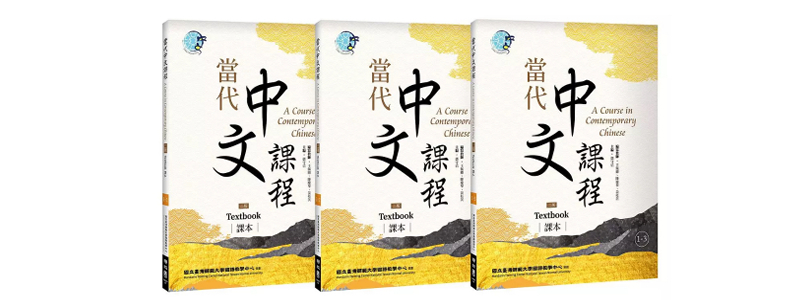解 jiě Adj./ V. (Literal meaning is “untied”) This is an internet slang in Chinese. It describes the feeling when you originally had good feelings toward someone, but because of certain words or actions, your interest immediately disappears. It can also mean that the vibe becomes awkward or the mood is ruined. 他tā在zài約會yuēhuì時shí一直yìzhí炫耀xuànyào錢qián, 真的zhēnde很hěn解jiě他tā在zài约会yuēhuì时shí一直yìzhí炫耀xuànyào钱qián, 真的zhēnde很hěn解jiěHe…
Author: tiffany
Potential Complement
Grammar Point:Potential Complements indicate whether or not an action is possible, which means whether it is able to be done or not. It’s not that complicated, is it? The structure is also simple – just add 得 de or 不 bu between the result complement and the verb. Result complement VS Potential complement: The Result…
Keep Doing sth – V 下去 xiàqù
Grammar Point:In Chinese, Verb + 下去 xiàqù is used to express “keep doing something” or “continue an action into the future”. Structure V + 下去 xiàqù 這zhè份fèn工作gōngzuò我wǒ實在shízài做zuò不bú下去xiàqù了le这zhè份fèn工作gōngzuò我wǒ实在shízài做zuò不bu下去xiàqù了leI really can’t keep doing this job. 這樣zhèyàng下去xiàqù, 我們wǒmen的de錢qián很hěn快kuài就jiù花huā光guāng了le这样zhèyàng下去xiàqù, 我们wǒmen的de钱qián很hěn快kuài就jiù花huā光guāng了leIf this continues, our money will be gone soon. 你nǐ再zài玩wán下去xiàqù就要jiùyào遲到chídào了le! 你nǐ再zài玩wán下去xiàqù就要jiùyào迟到chídào了le! If you keep playing, you’ll be late! 你nǐ這樣zhèyàng吃chī下去xiàqù會huì變biàn胖pàng喔o你nǐ这样zhèyàng吃chī下去xiàqù会huì变biàn胖pàng喔oIf you keep eating like this, you’ll…
In order to – 為了 wèile
Grammar Point:“In order to” translates into Chinese as 為为了 wèile. It is a preposition used to indicate the purpose of an action or the intention or goal behind an action. Structure 為为了 + aim/goal, do sth. 為了wèile學xué中文zhōngwén, 我wǒ決定juédìng去qù台灣Táiwān为了wèile学xué中文zhōngwén, 我wǒ决定juédìng去qù台湾TáiwānIn order to learn Chinese, I decided to go to Taiwan. 我wǒ為了wèile減肥jiǎnféi, 開始kāishǐ運動yùndòng我wǒ为了wèile减肥jiǎnféi, 开始kāishǐ运动yùndòngI started to exercise…
Confrontation with 嗎 ma
Grammar Point:In Chinese, using 嗎吗 ma at the end of a negative sentence creates a confirmation question or tag question, similar to English “isn’t it?” or “don’t you?” It implies seeking confirmation, expressing surprise or polite contradiction. Structure Negative + 嗎吗 ma 你nǐ不bú餓è嗎ma? 你nǐ不bú饿è吗ma? Aren’t you hungry?(Seeking Confirmation: I think you ARE hungry, despite what you might have…
B1 L15 Vocabulary and Practice
There’s a small menu in the bottom right corner where you can choose how you want to review. Options include:
B1 L14 Vocabulary and Practice
There’s a small menu in the bottom right corner where you can choose how you want to review. Options include:
“Unexpectedly” in Chinese – 不料 búliào
Grammar Point:The Chinese word 不料 búliào is an adverb that means “unexpectedly” or “to one’s surprise.” It’s a formal or literary word, most commonly used in writing, storytelling, or news reports — not so much in everyday casual speech. Structure 不料 búliào + unexpected outcome 我們wǒmen正zhèng準備zhǔnbèi出門chūmén, 不料búliào下xià起qǐ了le大雨dàyǔ我们wǒmen正zhèng准备zhǔnbèi出门chūmén, 不料búliào下xià起qǐ了le大雨dàyǔWe were about to go out, but unexpectedly, it started pouring rain. 他tā只zhǐ是shì去qù超商chāoshāng買mǎi個ge牛奶niúnǎi, 不料búliào遇yù到dào前女友qiánnǚyǒu在zài那裡nàlǐ約會yuēhuì他tā只zhǐ是shì去qù超商chāoshāng买mǎi个ge牛奶niúnǎi, 不料búliào遇yù到dào前女友qiánnǚyǒu在zài那里nàlǐ约会yuēhuìHe…
B1 L13 Vocabulary and Practice
There’s a small menu in the bottom right corner where you can choose how you want to review. Options include:
B1 L12 Vocabulary and Practice
There’s a small menu in the bottom right corner where you can choose how you want to review. Options include:






